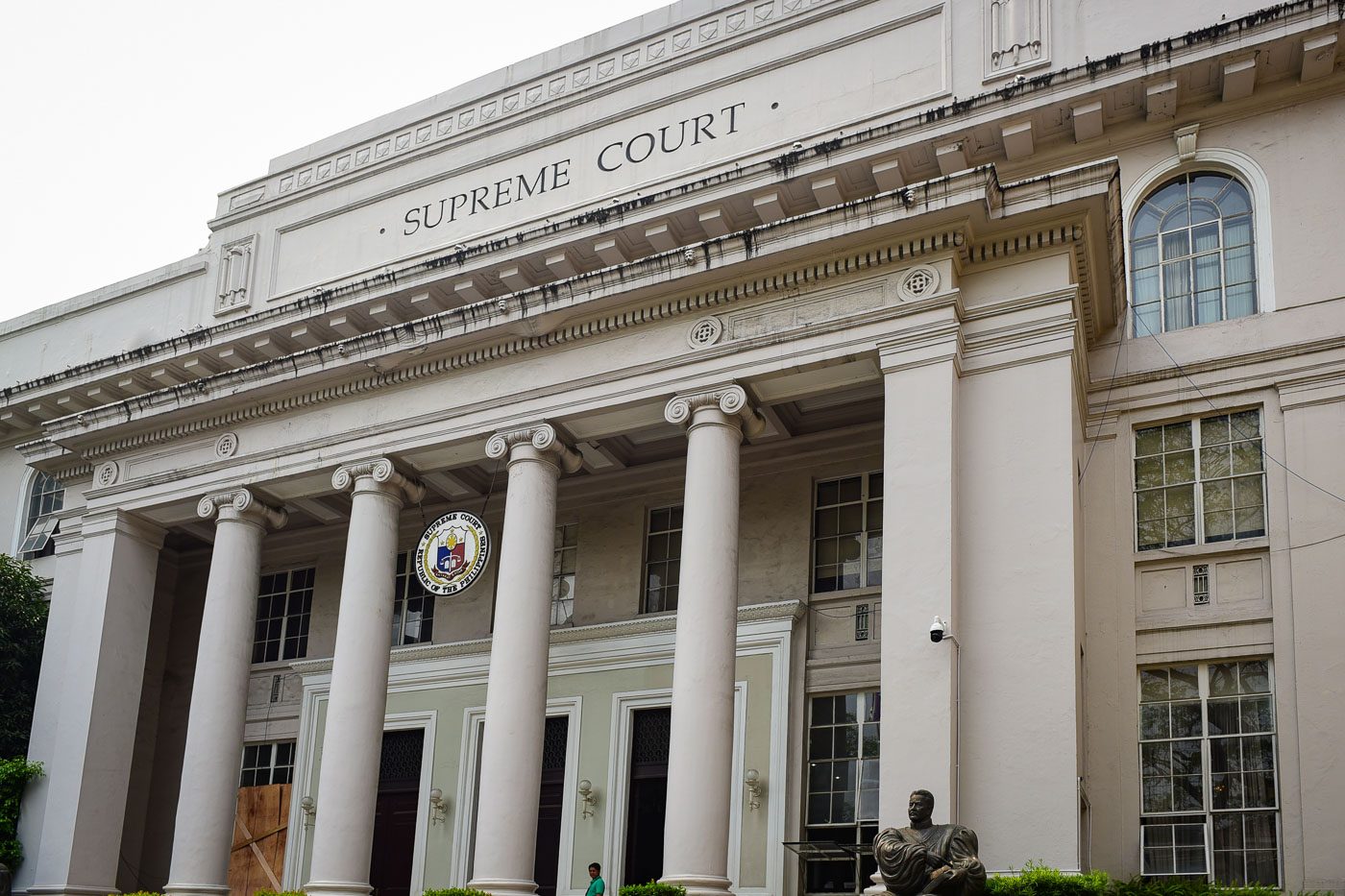SUMMARY
This is AI generated summarization, which may have errors. For context, always refer to the full article.

MANILA, Philippines – The Supreme Court (SC) on Tuesday, June 13, began its 3-day oral arguments on 3 consolidated petitions seeking to nullify President Rodrigo Duterte’s declaration of martial law over Mindanao.
On May 23, Duterte put Mindanao under martial law rule following clashes between government forces and the Maute terror group in Marawi City.
For the oral arguments, 3 groups of petitioners have raised questions on Duterte’s declaration of martial law, asking whether it was necessary, whether the Marawi siege that prompted the declaration should be considered rebellion, and whether Congress should have convened, among other issues. (READ: Nullify martial law? Your guide to the SC oral arguments)
The 3 groups of petitioners are composed of minority lawmakers led by Albay 1st District Representative Edcel Lagman, militant groups led by Lumad leader Eufemia Cullamat, and Marawi residents led by Mindanao State University (MSU) Professor Norkaya Mohamad.
Defending Duterte is Solicitor General Jose Calida.
Here are the highlights from Day 1 of the SC oral arguments.
Calida’s consolidated comment. Ahead of the oral arguments, the Solicitor General submitted to the SC a consolidated comment that contains information about the Maute group and its supposed links to the Islamic State (ISIS).
In his comment, he also revealed that the government had been aware of the local terror group’s plan to attack Marawi City to establish an ISIS province in Mindanao.
Marawi siege an act of rebellion? In his interpellation of the petitioners, SC Associate Justice Mariano del Castillo said there was sufficient basis to consider the Marawi siege a case of rebellion, pointing out the presence of foreign terrorists and the raising of an ISIS flag. But petitioner Representative Edcel Lagman said the flag-raising was merely “cheap propaganda” on the part of the terror groups.
‘Trust good judgment of the President.’ SC Associate Justice Lucas Bersamin said he is willing to presume good faith and regularity on the part of the government, if petitioners are unable to produce evidence to back up their arguments that there is insufficient basis to declare martial law.
Bersamin told lawyer Ephraim Cortez that the burden of proof to show that the declaration was invalid is on the petitioners.
He added that without a clear standard of proof that the High Court should impose, the determination of whether there is sufficient basis for the proclamation of martial law is up to the SC’s judgment.
“You leave that to the good judgment of the court, as you would leave the proclamation of martial law to the good judgment of the President,” Bersamin added.
Clarify martial law guidelines. For SC Associate Justice Marvic Leonen, there should be clearer operational guidelines on martial law. He noted that under the Constitution, martial law’s definition is limited to acts which cannot be done, but not so much on what can be done.
Meanwhile, Senior Associate Justice Antonio Carpio raised doubt on whether there was an actual case of rebellion in Marawi, pointing out that mere imminent threat of rebellion is not enough to declare martial law.
He also questioned the reason for declaring martial law over the entire island of Mindanao.
The SC resumes oral arguments on Wednesday, June 14, at 10 am. – Rappler.com
Add a comment
How does this make you feel?










There are no comments yet. Add your comment to start the conversation.